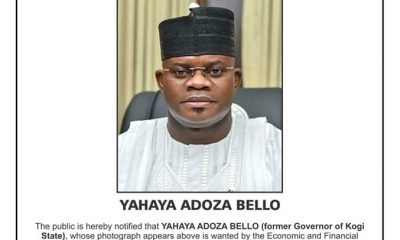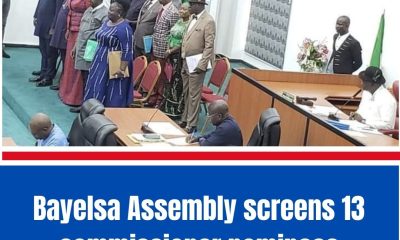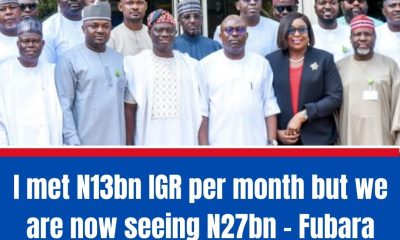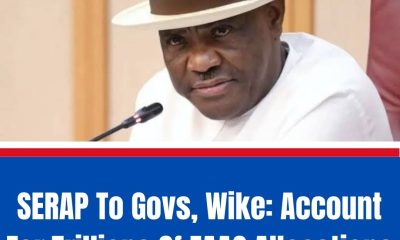News
5G: MTN tackles NCC over attempt to cap spectrum acquisition

Nigeria’s only fifth generation (5G) technology service provider, MTN Nigeria, has tackled the regulator of the telecom sector, the Nigerian Communications Commission (NCC) over its attempts to place a cap on spectrum acquisition on the 3.5Gigahertz (Ghz) band dedicated for the deployment of 5G services.
Last year, the NCC had offered two Lots of 100mgahertz (MHz) time-division duplexing (TDD) for sale during a competitive spectrum auction. Three companies-MTN Nigeria, Airtel Nigeria and Mafab Communications Ltd, had competed with Airtel Nigeria posting an exit bid price of $270 million while MTN and Mafab upped the game to $273million to win the coveted spectrum. The reserve price was fixed at $197.4million.
According to a document containing MTN’s position concerning Spectrum Cap in 5.30 on the information memorandum (IM) prepared by the NCC ahead the sale of the spectrum, the operator said: “We note, with concern, the provision of the draft IN which provides that: “the Commission places a cap of 100MHz as the maximum amount of Spectrum a Licensee can acquire in the 3.5GHz band” and respectfully invite the Commission to note the following:
“It had provided the assurance that an operator’s emergence as a winning bidder in the 2021 auction of spectrum in the 3.5GHz spectrum band will not operate as a restriction on the said operator’s ability to participate in future licensing processes. Our understanding of this position is that such winning bidder can also participate in the spectrum licensing processes (including the proposed auction of additional spectrum in the 3.5GHz spectrum band) without let or hindrance;
“On the strength of the Commission’s assurances, MTN further participated in the Assignment Stage of the 2021 auction and, as the Commission will recall, paid and additional sum of N6,546,348,000 (Six Billion, Five Hundred and Forty-Six Million, Three Hundred and Forty-Eight Naira), being a premium for its preference of the 3500 – 3600MHz spectrum lot (Lot B). “The appeal of Lot B was its cost efficient deployment/roll-out properties as well as its positioning in the band which came with the potential for MTN to be able to subsequently bid for/possibly acquire a contiguous Lot A or Lot C and ultimately provide mutually beneficial efficiencies such as maximized network performances;
“Every generation of mobile technology improves network performance (e.g., increased bandwidth, spectral efficiency, lower latency), which also leads to new uses and in turn increased demand for spectrum; and unfettered ability of previous winners from the December 2021 auction to participate in this instant spectrum auction will further engender a more robust and highly competitive spectrum auction process.”
In its recommendation, MTN ‘respectfully’ reiterated its prior recommendation that, to ensure that all the spectrum can be assigned and used efficiently, it will be appropriate to allow successful bidders in the prior auctions of spectrum in the 3.5GHz (or indeed any other spectrum band) to participate in future awards. “It is in MTN’s considered view that a cumulative cap of 200 MHz in the 3.5 GHz band would be appropriate across all awards in the band,” MTN averred. The Commission however said it has noted the comments of MTN, promising to look into it.
In the IM, NCC said the application date for the license would start November 21, bidders to be notified on December 9; mock auction will be December 16, while auction proper holds December 19. By December 21, NCC would publicise and notify provisional winners. Winners would be expected to make payment for the spectrum by January 20, 2023.
NCC stressed that the launch of commercial services shall be not later than 12 months after the effective date of the licence, adding that the successful bidder shall be assigned the 3.5 GHz Frequency licence and the UASL where applicable and shall roll out services.
Between year one and two, the IM said, starting from the effective date of the licence, there should be rollout of service in at least two states in each geo-political zone of the country: South-West (SW), Southsouth (SS), Southeast (SE), Northcentral (NC) including FCT, Northwest (NW) and Northeast (NE).
By year three to five, operators must extend 5G services to additional six states other than those in year one to two, across the six geo-political zones. By year six to 10, operators are encouraged to roll out across all other States.
“Service in each state would mean a minimum of five sites in a state. Minimum speed of 100 Mbps Down Link (DL) using applicable test measurement tools,” NCC stated.
However, the commission said in the event of the successful licensee’s inability to deploy services as specified herein, it (NCC) reserves the right to sanction the licensee based on relevant sections of existing regulations except for areas where force majeure is established.
-

 News6 days ago
News6 days agoJUST-IN: EFCC declares Kogi ex-gov, Yahaya Bello wanted
-

 Sports4 days ago
Sports4 days agoFA Cup: Man Utd suffer fresh triple injury blow ahead Coventry clash
-

 News6 days ago
News6 days agoPort Harcourt company gifts plot of land to Law Graduate, Anyim Veronica
-

 Politics6 days ago
Politics6 days agoBayelsa Assembly screens 13 commissioner nominees
-

 Politics7 days ago
Politics7 days agoKogi State Governor, Usman Ododo, reportedly storms Yahaya Bello’s Abuja residence amidst EFCC siege.
-

 Business3 days ago
Business3 days agoI met N13bn IGR per month but we are now seeing N27bn – Fubara
-

 News4 days ago
News4 days agoDespite Apology, ABU Zaria Final-Year Law Student Arrested For Defaming Police Officer On Facebook
-

 Politics3 days ago
Politics3 days agoSERAP To Govs, Wike: Account For Trillions Of FAAC Allocations




















